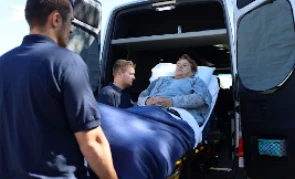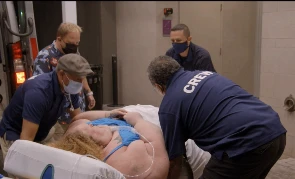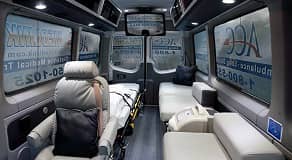Caring for an elderly loved one who is struggling with dementia can be very difficult. The mental stress is often harder to cope with than the physical demands – although caregivers often feel both mentally and physically exhausted. As the dementia progresses, it is as though the person they once were is taken away by the disease a little more each day and is heartbreaking for everyone.
As memories are lost, all tasks gradually become more difficult or impossible for a person with dementia. Travel, especially a long trip, becomes especially difficult unless properly planned and only undertaken for a very important reason. If the dementia patient has ever become aggressive or ‘acted out’ when taken on a short trip, it can be anticipated that this behavior will worsen on a long trip. Arranging for Medical Transport with Dementia patient expertise is probably a better choice than doing the trip on your own.
For All Travel, Be Sure That You Have This Information With You
Be Sure Person With Dementia has ID
Make Travel Easier
Traveling on a Commercial Airliner
Medical Transport with Dementia patients is often the best choice. There are choices as to the type of transport (cruiser, coach or plane). A travel nurse is always available. Using a service that specializes on medical transport with Alzheimer’s sufferers ensures that your loved one will receive understanding, compassion and expert care geared to their needs. Professional medical transport elderly may well allow for this long trip to be as safe and comfortable as possible for a person with dementia.

When choosing a medical transport service provider, you must ensure to choose one that not only focuses on getting you to your destination, but also prioritizes using the safest, most conducive, and most efficient sets of vehicle fleets and equipment to do the job.

ACC Medlink appeared on the TLC television network reality show “1000 LB Sisters” to transport one of the cast members from Ohio to a doctor in Kentucky. ACC Medlink, four of its employees, and the journey they took with Tammy Slaton were featured in episode 6 of season 4.

ACC Medlink is proud to announce the addition of a new line of elite medical sprinter vans to our long distance medical transport fleet. This addition will allow ACC Medlink to continue to provide superior service and outstanding care for those in need of medical transport out of state...
